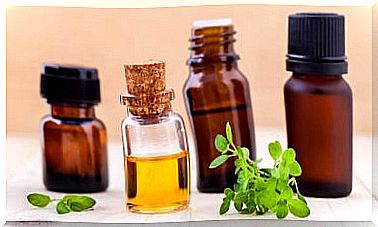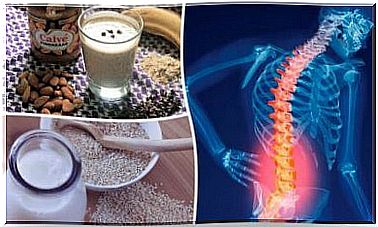Home Remedies For Allergic Rhinitis
Between 10 and 20% of the population suffers from this allergy caused by an exaggerated reaction of the immune system when inhaling various substances. In this article, we’ll tell you about the best home remedies for allergic rhinitis. Don’t miss it!
What To Know About Allergic Rhinitis
Allergic rhinitis is an inflammation of the mucous membranes or inner membranes of the nose. There are several causes of this type of allergy. However, the most frequent are:
- Herb or flower pollen
- animal hair
- bird feathers
- environment pollution
- tree flowers
- Mites or dust (present on bed sheets and pillows)
- Mold spores in the air
The risk factors that increase the chances of suffering from allergic rhinitis are:
- family background
- Suffering from other allergies
- weakened immune system
- Exposure to smoke or cigarette
This problem is more frequent in men than in women and there are two types:
- Seasonal or Hay Fever
- Perennial, produced all year round
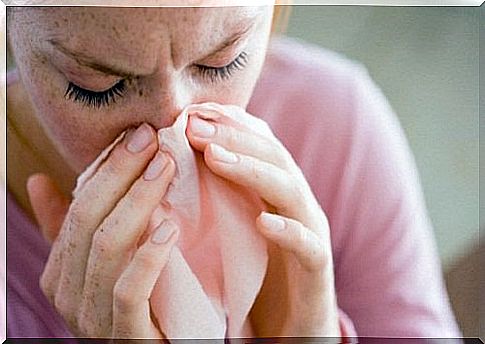
The common symptoms of allergic rhinitis (which can affect a person’s quality of life) are:
- Nasal discharge
- itchy nose
- repetitive sneezing
- Watery and puffy eyes
- Headaches
- dry throat
- Weakness
- Fatigue
- dark spots under the eyes
- dry cough
- Concentration Problems
Because many of the signs of allergic rhinitis are similar to those of a common cold, many people overlook or confuse the picture.
One way to realize what you are suffering from is to analyze the nasal secretion. In the case of allergic rhinitis, they are transparent and watery, in addition, the symptoms worsen when there is too much sun.
Duration is also longer in rhinitis: it can last for several weeks.
The Best Remedies for Allergic Rhinitis
In order to reduce the signs of this allergy, homemade recipes are of vital help. The ones that stand out are:
Apple vinegar
It has antihistamine and antibiotic properties and can help reduce sneezing and nasal congestion. In turn, it is perfect for regulating the immune system. To enjoy its benefits, you can prepare the following remedy.
Ingredients
- 2 scoops of apple cider vinegar (20 ml)
- 1 teaspoon of honey (7.5 g)
- 1 scoop of lemon juice (10 ml)
- 1 ½ glass of warm water (300 ml)
Preparation
- Place the vinegar, honey and lemon in a glass.
- Add water and stir well with a spoon.
- Drink 3 times a day (morning, afternoon and evening)
Garlic
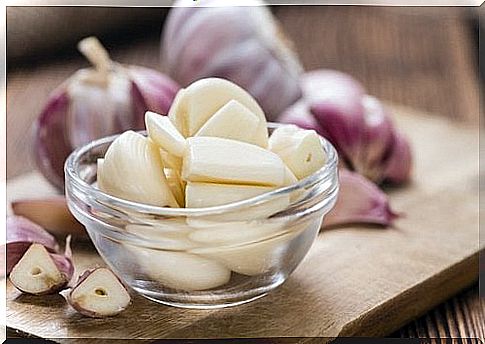
There are many properties that this vegetable has, so be sure to include it as a medicine and as an ingredient in thousands of recipes. It is a potent antibiotic, antibacterial, antiviral and stimulates the body’s defenses.
You can chew a raw garlic clove in the morning or include it in daily recipes.
Turmeric
It serves to reduce all types of allergies, as it is anti-inflammatory and antioxidant. It also improves the immune system and reduces congestion, sneezing and dry mouth. You can consume turmeric in different recipes or prepare a home remedy.
Here we offer your options:
Ingredients
- 6 tablespoons of turmeric powder (60 g)
- 6 spoons of honey (150 g)
Preparation
- Mix the turmeric and honey in a container until a kind of paste forms.
- Store the covered mixture in the refrigerator.
- Consume 1 scoop fasting and 1 scoop before bed during allergy season.
Medicine with milk
Ingredients
- 1 tablespoon of turmeric (10 g)
- 1 glass of warm milk (250 ml)
Preparation
- Heat the milk and remove from heat before it boils (or let it cool if it comes to a boil).
- Mix with turmeric and fuse well.
- Drink every night before going to bed.
Ginger
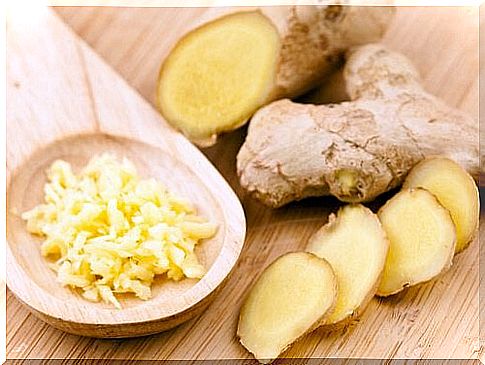
This is a very useful remedy for allergic rhinitis as it is a potent antihistamine and an antiviral like no other. Ginger has anti-inflammatory and antibacterial properties and boosts the immune system.
Reduces headache, discharge and nasal congestion. In addition to chewing a very thin piece of this root every day, you can make a very effective home remedy.
Ingredients
- 1 spoon of grated ginger (10 g)
- 1 glass of water (250 ml)
- 1 piece of cinnamon
- 1 spoon of honey (25 g)
- the juice of a lemon
Preparation
- Put the ginger and cinnamon water in a kettle and bring to a boil. Let it cook for 5 minutes.
- Strain and add honey and lemon.
- Drink twice a day (morning and evening, for example)
Nettle
It is a perfect antihistamine and anti-inflammatory that has been used in alternative medicine for thousands of years to treat stationary allergies. Provides quick relief from itchiness and nasal congestion, coughing and sneezing. You can prepare a nettle infusion:
Ingredients
- 1 spoon of dried plant leaves (10 g)
- 1 glass of water (250 ml)
- 1 spoon of honey (25 g)
Preparation
- Put the water and nettle leaves in a kettle.
- Heat and, when it starts to boil, leave for 5 minutes.
- Remove from heat and let stand for 10 minutes covered.
- Strain and add honey.
- Drink 2-3 times a day.
Alfalfa
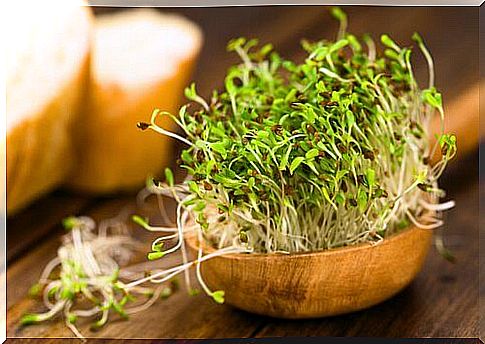
It has a good amount of vitamins A and K, as well as chlorophyll and various trace elements that reduce the symptoms of allergic rhinitis. To enjoy its benefits, an infusion must be prepared.
Ingredients
- 3 spoons of alfalfa (30 g)
- 2 glasses of water (500 ml)
- 1 teaspoon of honey (7.5 g)
- 2 scoops of lemon juice (20 ml)
Preparation
- Boil water with alfalfa for 10 minutes.
- Remove and strain.
- Add lemon and honey.
- Let it stay warm and drink it throughout the day.

